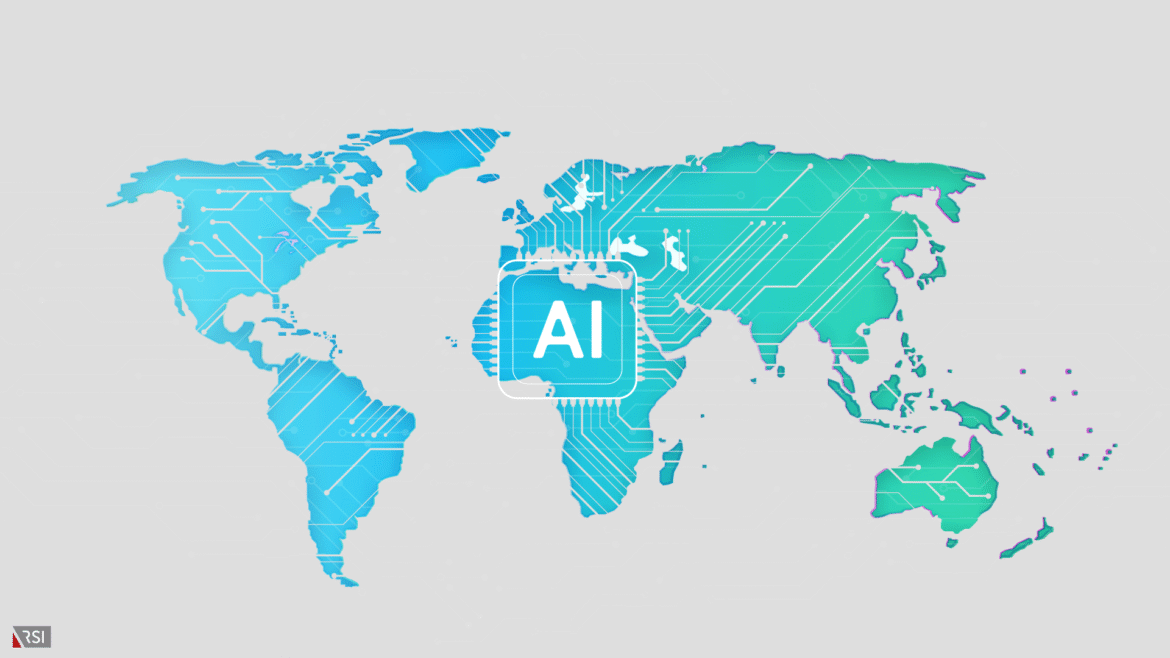In 2024, artificial intelligence (AI) is no longer experimental—it’s essential. McKinsey’s latest Global Survey on AI reveals a dramatic surge in adoption, with organizations embedding AI deeper into their operations to gain competitive advantages.
AI Adoption Accelerates
Generative AI (Gen AI) adoption has soared, with 65% of organizations reporting regular use in at least one business function—nearly doubling from 33% in 2023. Wider AI integration is evident, as 72% of companies now use AI in at least one area of their operations, indicating a major shift in digital strategy. Moreover, AI is no longer siloed. Half of all respondents report using it across two or more business functions, up significantly from under a third last year.
Where AI Delivers Value
Marketing and sales departments are seeing some of the greatest returns on AI investment, leveraging these tools for personalized content, improved customer targeting, and automation. In product and service development, AI is playing a central role in how organizations design, test, and enhance their offerings, allowing for faster iteration and innovation. IT remains a leading function in AI utility, where technologies are optimizing system performance and delivering automated support at scale.
Organizational Shifts for AI Value
High-performing companies are rethinking how they scale and manage AI to capture long-term value. Many are creating dedicated AI governance structures—such as Centers of Excellence or AI leadership councils—to centralize oversight and align AI efforts across departments. Leaders are also redesigning workflows from the ground up, embedding AI capabilities directly into operational processes rather than layering them on top of legacy systems. This shift requires deep collaboration between technical and business teams. Executive engagement has intensified, with senior leaders playing an active role in AI strategy and resourcing. Their involvement ensures alignment between AI initiatives and overall business goals.
To support these changes, organizations are investing in broad upskilling programs. Employees across functions are receiving targeted, role-based training to work confidently with AI. Additionally, many are looking to external guidance frameworks to inform responsible scaling. Standards like ISO/IEC 42001 (the first global AI management system standard) and the NIST AI Risk Management Framework are helping organizations structure governance, measure impact, and mitigate risk throughout the AI lifecycle.
Addressing AI Risk and Ethics
As adoption grows, so does awareness of potential risks. Inaccuracy remains a top concern, with many organizations implementing manual review processes to ensure outputs are reliable and consistent. Cybersecurity is also a priority, prompting enhanced safeguards around AI systems and the data they handle.
In the realm of intellectual property, companies are taking steps to protect proprietary data and avoid unintentional IP violations in AI outputs. Meanwhile, compliance and ethics are gaining prominence, with businesses placing greater emphasis on transparency, fairness, and alignment with evolving legal standards.
AI Investment Trends
AI spending is on the rise. Many organizations now allocate more than five percent of their digital budgets to generative or traditional analytical AI solutions. Looking ahead, 67 percent of surveyed companies plan to increase their AI investments over the next three years. That signals strong confidence in AI’s long-term value.
The Workforce Shift
AI is reshaping labor strategies across industries. Companies are investing in large-scale re-skilling programs, preparing employees to work effectively with AI technologies. At the same time, while AI automates repetitive and manual tasks, it also elevates the importance of strategic, human-driven roles that demand critical thinking, judgment, and adaptability.
AI Governance Frameworks: ISO 42001 and NIST AI RMF
As AI integration deepens, governing its use responsibly is becoming a top priority. Two emerging standards are helping organizations meet this challenge: ISO/IEC 42001 and the NIST AI Risk Management Framework (AI RMF).
ISO/IEC 42001, the world’s first AI-specific management system standard, provides a structured approach for establishing, implementing, maintaining, and improving an AI management system. It guides organizations on how to define policies and assign responsibilities while ensuring transparency, traceability, and continuous improvement.
Meanwhile, the NIST AI RMF offers a flexible, risk-based framework designed to help organizations identify, assess, and manage AI risks across development and deployment. It emphasizes trustworthy AI principles, such as fairness, accountability, and robustness.
Both frameworks serve as essential tools for organizations seeking to scale AI with confidence. For companies navigating implementation or alignment with these standards, RSI Security offers advisory services tailored to ISO/IEC 42001 and NIST AI RMF compliance.
Lead the AI Wave—Secure, Scalable, and Compliant
McKinsey’s 2024 AI survey sends a strong message. Organizations that move decisively, invest in talent and risk mitigation, and embed AI across operations are driving the next wave of digital transformation. But innovation alone isn’t enough. Responsible governance is just as critical. Aligning with global standards like ISO/IEC 42001 and the NIST AI Risk Management Framework (AI RMF) ensures that AI systems are trustworthy, compliant, and future-ready.
Ready to govern your AI responsibly? Schedule a free consultation with RSI Security to align your systems with globally recognized AI governance standards.
Discover how RSI Security can help your organization. Request a complimentary consultation:
